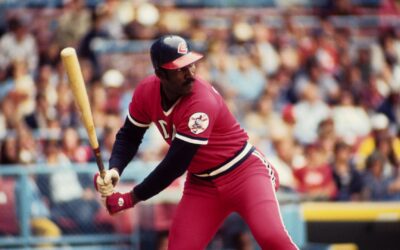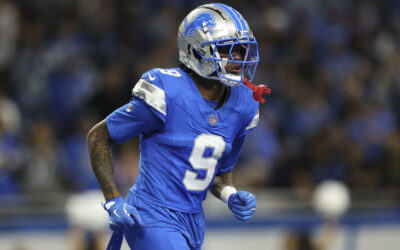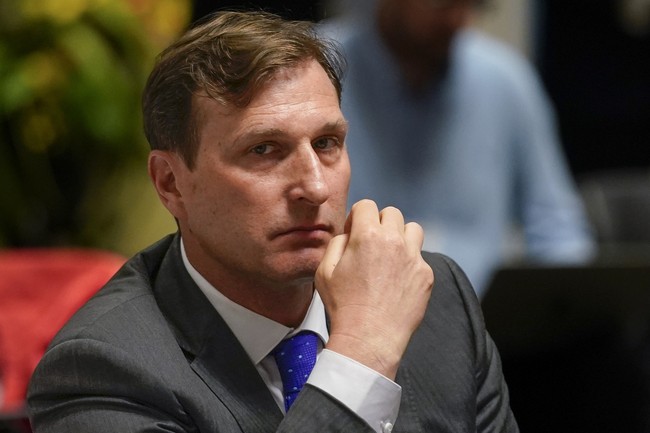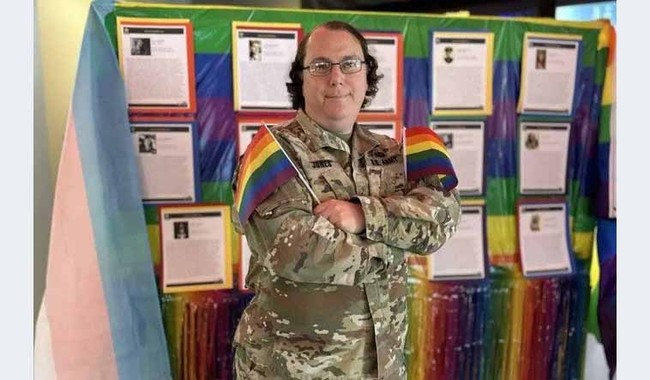Wednesday Western: ‘The Ballad of Cable Hogue’ (1970)
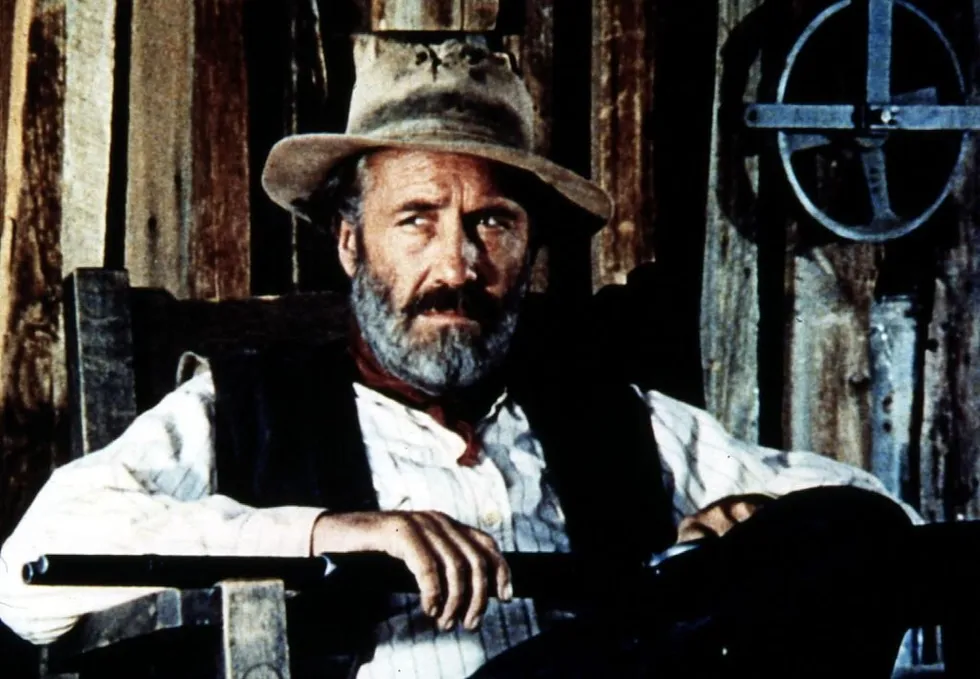
Venture into the life of a failed prospector named Cable Hogue (Jason Robards) as he scrambles through the last remnants of the American frontier. Hungry, he growls at a lizard, which explodes right as Cable is about to nab him.
From the shadows, Cable’s partners, Taggart (L.Q. Jones) and Bowen (Strother Martin), played target practice with the lizard.
For all the biblical imagery, there are equal parts raunch and bawdy humor, darting camera shots from face to cleavage.
When they emerge from the dust, he points his rifle at them. They laugh.
Cable responds: “I appreciate humor, boys, but I’m beginning to think you’re cuttin’ it a mite thin.”
But he hesitates to shoot them. So they clobber him and steal his gun and his water.
“Cable is yella!” they taunt as they glide away, leaving Cable to die.
So he talks to himself. (A lot. Throughout the whole movie.)
Watching them fade into the dust, as he grits his teeth: “Yellow!” he exclaims. “Call me yellow! Leave me to dry and blow away! SING A SONG ABOUT IT! Laugh at old Cable Hogue, huh? I’ll get out! I’ll get out! Don’t you worry none about that! You just … worry about when I get out.”
He keeps hollering until he has no choice but to abandon his humiliation, for now, and wander into the rocks of Arizona red. He’s halfway to hell and looking for help. And he’s thirsty. In that picturesque landscape, the sunlight never ends. Two days without water. So he talks upward, to God. He promises to sin no more if he can just get a drop of water.
“I mean that, Lord.”
Nothing. No water.
Second day: No water. Just more blistering. He continues to beg for God’s mercy.
Then, on the fourth day, the sunlight is replaced by a sandstorm, total dryness. He collapses into a growing dune: “Lord, you call it. I’m just plain done in. Amen.”
And on this cruel deathbed, water begins to pool up from the ground.
Then, he does something that recurs throughout the film in countless ways by every character, even the extras without lines: He abandons high ideals without pause.
In this case, he ambiguously taunts the Lord, taking credit for his survival: “Told you I was gonna live. This is Cable Hogue talking. Hogue. Me. Cable Hogue. Hogue. Me. Me. I did it. Cable Hogue. I found it. Me.”
It’s a comically bleak and cathartic way to open a film. Like everything else we encounter, it’s slippery and ever-changing and impossible to pin down. As Cable puts it later, “I found water where it wasn’t.”
The president’s man
Jason Robards, who plays Cable Hogue, is a fascinating guy. He discovered the work of Eugene O’Neill in the library of the USS Nashville, and this set him toward his Hollywood career. Robards played Jamie Tyrone in the film rendition of Eugene O’Neil’s dour stage play “Long Day’s Journey into Night.”
Robards was married to Lauren Bacall for most of the 1960s, until the marriage collapsed under the weight of his alcoholism, much like the character he played in O’Neill’s masterpiece.
As for Westerns, there’s his portrayal of Doc Holliday in “Hour of the Gun” (1967) — and who could forget his menacing performance in “Once Upon a Time in the West” (1968)?
He won an Oscar for his portrayal of Washington Post managing editor Ben Bradlee in “All the President’s Men” (1976), then another for his hard-nosed depiction of detective-novelist Dashiell Hammett in “Julia” (1977). His final credit was “Magnolia” (1999).
When Robards died, then-President Bill Clinton issued a statement of condolence. Clinton had awarded Robards both a National Medal of Arts and the Kennedy Center Honors award.
His talent is largely why “The Ballad of Cable Hogue” stands as such a thematically and emotionally complex film, humourous and oddly relaxing, with a soft tone and leisurely pace.
The Bad Samaritan
“The Ballad of Cable Hogue” has Slim Pickens and the legendary Kathleen Freeman, who barked her way through “The Blues Brothers” series as well as appearances in a ton of blockbusters.
You’ll also recognize Strother Martin, whom we discussed in the entries about “True Grit” (1969) and “The Sons of Katie Elder” (1965). Also R.G. Armstrong, who played Kevin MacDonald in “El Dorado” (1967).
But perhaps most of all, the film is known as a creation of Sam Peckinpah.
Peckinpah is a legendary figure in cinema history, wild even by Hollywood standards. We’ll spend quality time with him in the entry for “The Wild Bunch.” “The Ballad of Cable Hogue” was the unexpected love child that followed it.
Over the course of the 19 days of filming, he got hammered and rowdy. At one point, he fired three dozen crew members. Inclement weather shuttered the set, and the cast rushed to a nearby bar. By the end, the tab had grown to $70,000. The film itself went $3 million over budget. The whole mess cost him his job with Warner Bros.
‘Ten cents, you pious bastard, or I’ll bury you’
God plays a tremendous role in Cable’s journey, but so does the devil. Many of the characters quote Bible verses with ease, conversationally, although this habit is also used as device to unmask hypocrisy, like the impatient banker in the stagecoach.
The Christian message is strong but also playful and, often, unclear. Until, of course, it isn’t.
Like our introduction to Rev. Joshua Sloan, who spooks Cable enough that Cable shoots the reverend’s hat off.
“Peace and goodwill, brother,” Rev. Sloan pleads. “l come as a friend.” Waving a white handkerchief: “Careful, son, I’m a man of God.”
Cable, squinting: “Well, you damn near joined him.”
The sudden appearance of water is reminiscent of Jacob’s well and the outpouring of Psalm 107:35, “He turns a desert into pools of water, a parched land into springs of water.”
After shooting at the “reverend” again later in the film, Cable snarls: “What a blessing religion must be, preacher. It touches my heart.”
This ironic theological undercurrent is a useful way to embolden the ungodly elements that add sparkle to the story, which in turn elevate a reciprocity between the sacred and the profane. Like the way Hogue sadly mutters to the banker, “I’m worth something, ain’t I?” A sadness, of course, motivated by his desire to visit Hildy, the most prized prostitute in Dead Dog.
The optics are all askew, a slapdash rendition of heaven. Hogue’s pale horse is spotted like a Dalmatian. Death is life; life is rowdy.
He and the preacher talk about life from a grave-like hole. The preacher, in his clerical suit with white collar, oversees a “congregation” consisting of photos of naked people, women presumably.
Or how about the way he handles Frank’s death? That entire scene is both uncomfortable and hilarious.
Together, Cable and the preacher get drunk in the grave, then ride to Dead Dog, with visions of Hildy. After falling off the horse, the preacher loosens his collar: “If I cannot rouse Heaven, I intend to raise hell.”
The twist
Fluctuations like these are a hallmark of postmodern film. Nothing is what it appears to be. Irony abounds. Up is down … and over and under. Then — all at once — you land in a reality so crisp that it almost hurts to experience.
“The Ballad of Cable Hogue” is bursting with these moments and guided by this artful little surprise maneuver. For all the biblical imagery, there are equal parts raunch and bawdy humor, darting camera shots from face to cleavage.
The implication of prostitution, in “Stagecoach” (1939) for instance, is a thing of the past. “Cable Hogue” takes us into the stink of the henhouse. But right as the steam is about to boil, we cut to a scene full of clergymen and crosses amid a sermon: “The devil seeks to destroy you with MACHINES! Ask me how I know! … Inventions are the work of Satan!”
This interplay is constant. The entire fight scene between Hildy and Hogue is swamped with it. A choir sings “Shall We Gather at the River” as Hogue sprints away from his dine-and-dash with Hildy, ducking into the sign for the big tent revival that says, “BE SAVED. SINNER REPENT.”
And of course Hogue deflates the tent, whiskey bottle in hand, pants half on, fleeing from his backroom mischief.
The townsfolk chase him out of Dead Dog. And more than one of them think it’s the funniest thing they’ve ever seen.
Then the movie can take a sudden turn, and you crash into these beautiful embraces, moments that knock you over because they’re so powerful.
As we fall into the love story, all the irreverence fades away. Or better yet, it becomes purified.
And there’s that moment, halfway through the movie, when Ben (Slim Pickens) dutifully hands Cable the American flag. You can feel each person’s emotions. And suddenly, you’re right there with them, smack dab in the middle of a treacherous desert, and you’re sweaty and you’re worried, but you’re safe and you’re free.

